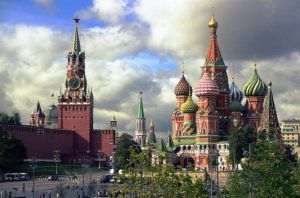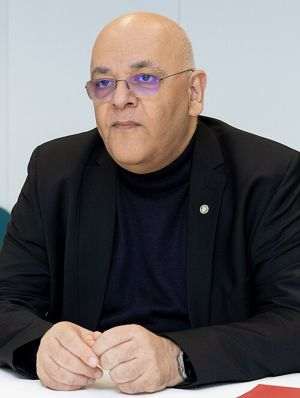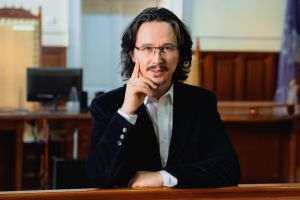Reporter: You have a thorough knowledge of the past and present of Eastern Europe. You know that Romania, Poland and the Baltic countries are concerned about the aggressive actions of the Russian Federation, given the similar past they had with the former USSR, and even with Tsarist Russia. These Eastern European countries tend to rely on the partnership with the US, more than the Western European countries, to discourage the potential threats originating from Russia. But so far, the Eastern-Europeans have not succeeded in creating a political flank, for instance following the model of regional military and political cooperation that the Scandinavian countries have. Would that be a viable project? Could it contribute to limiting the subversive actions which Russia is taking against Europe? In your opinion, why hasn't such a project been sufficiently attractive so far so as to become reality?
Dr. Richard Weitz: NATO's new concept of a "framework-nation" (ed. note: - passed by NATO in 2014, at Germany's proposal, the concept involves the formation of groups of countries within the Alliance, under the leadership of a " framework-nation", that would develop together forces and capacities that are adequate to a common purpose) could contribute to the creation of such a project.
The Nordic countries are a distinct case, through the cooperation which they have developed over the last decades, but the concept of "framework-nation" would allow Poland, for instance, to lead a cooperation project between several NATO members. Still, countries in Eastern Europe, even together, can not deal with Russia's actions, without the involvement of an external balancing factor, such as the US.
Reporter: Please explain how the interests of the US are affected by Russia's actions against Ukraine and not only. Do Republicans and Democrats have different perceptions on these actions?
Dr. Richard Weitz: Russia's actions are seen as destructive and illegal, even if Ukraine is not part of NATO and that suggests that Russia would not take on the risk of similar actions against Romania, the Baltic countries or any other member of the Alliance. Generally, the Republicans demand a stronger reaction from the US, such as supplying defensive weapons to Ukraine. Still, it is not a matter on which there would be major disagreements between Republicans and Democrats, as it is on the nuclear agreement with Iran.
Reporter: On July 29th this year, the Foreign Relations Committee of the Senate approved the nomination made by the President for the position of US ambassador in Romania, namely Mr. Hans G. Klemm, who is a career diplomat. His three predecessors in Bucharest were politically nominated (author's note: in the American system, these nominations are people selected by the President from outside the body of diplomats, usually donors or personalities which have granted support in the electoral campaigns). In fact, during the second term of George W. Bush, the US ambassadors in Romania, Poland, Estonia and Latvia were all politically appointed. Their successors, on the other hand, proposed by president Barack Obama and approved by the Senate, are career diplomats. Could we say that when it comes to ambassador positions, Republicans prefer political nominations, while Democrats prefer career diplomats? Could we assume that the current situation, where US ambassadors in Eastern-European countries are career diplomats, is related to the recent developments in Eastern Europe?
Dr. Richard Weitz: It is difficult to generalize. Often, people who contribute a lot of money to the campaign of a president or of a party that wins the elections get offered the opportunity to be ambassadors. But certain political nominations are made because of different reasons, as was the case with the former US ambassador in Moscow, who was very close to president Barack Obama. I don't think that there is a major difference in the practices of the two parties (ed. note: the Republican and the Democrat Party). President Barack Obama has even been criticized for making so many political nominations in the beginning of his first mandate. A regular presidential administration follows a cycle in which political nominations are made at first, and then those people leave and they are replaced by career diplomats.
Reporter: How is Romania currently viewed in Washington? What could it do to have more visibility in the economic cooperation with the US?
Dr. Richard Weitz: Romania's profile has already become more visible, amid the threat projected by Russia on your neighbors, as a result of the relocation of the American troops in Manas, in Kyrgyzstan, to bases in Romania and because of the fact that soon, American missiles will be installed in Romania (author's note - the interceptors which the base at Deveselu will have). In Washington, there is some concern about corruption and political instability, but they do acknowledge that things are improving, there is also the satisfaction that the previous tensions concerning the Hungarian minority have decreased.
Reporter: In 1997, the US and Romania signed a strategic partnership, which subsequently proved effective on its three levels- political, defense and intelligence. There are voices in Romania that deplore the fact that the economic level of the partnership has remained far beyond its potential, compared to, let's say, the relationship between the US and Turkey. The same voices are saying that Romania did not know how and still doesn't know how to extract economic benefits from our strategic partnership. Given these considerations, could you make a succinct evaluation of the expectations that the US has from Romania? In turn, what should Romania do to strengthen its ties with the US?
Dr. Richard Weitz: Keep hosting the American troops, eliminate corruption and other vulnerabilities, keep up the good cooperation relations with neighboring countries. Still, due to historical and geographical reasons, Romania will always be less visible in Washington then the major European countries.
Reporter: Please explain to the Romanian public how "the system works" in Washington, how the think-tanks - such as the Hudson Institute, which has existed for more than 50 years - supports institutions such as the state department, the Defense Department, the Congress and even the Presidential Administration.
Dr. Richard Weitz: Think-tanks fill an important void in the "system". The decision makers have a busy schedule and they are buried in crises that occur every day, while the academic sector produces books that are extraordinarily good, but which are often too abstract to be applied. These think-tanks conduct customized studies focused on policies, which can, directly, help the decision factors be aware of the options they have available and to decide on the best way to materialize them. Many government officials come from the think-tank environment or join them once their term in the public sector ends. Think-tanks are particularly useful for political forces that are not in power, and thus do not have access to the administrative resources of the state to conduct the studies that they need.
Reporter: Romania does not have a tradition of cooperation between the executive and legislative power and the non-governmental organizations specializing in foreign policy and military strategy. We can say that the situation is the same in most of the European countries that had a communist past. If you agree with the idea that a transfer of American experience would be possible, how would it take place? What should the US do to share the tradition of cooperation between the state authorities and these NGOs? On the other hand, how could Eastern European states use that expertise, for their own benefit? Could a joint effort might lead to a successful institutional development?
Dr. Richard Weitz: On a global level, the US is a unique case. No other country, not even the big Western countries has such a degree of development of think-tanks that the US does. It is hard to tell how the American experience could be transferred to any other country, especially taking into account the distinct practice of the US to bring to high level positions in the governmental structures people from the outside. Most of the advanced countries have a professional diplomatic body, that supplies personnel both to the top levels of diplomacy, as well as to the public institutions.
Reporter: In the end, I want to ask you whether your plans for the future include a trip to Romania? What kind of event or topic would be attractive enough for you to make room, in your busy schedule, for a visit to Bucharest?
Dr. Richard Weitz: I was in Romania for a week in 1985, in the context of larger tour in the Soviet space. There were harsh times, due to the difficult economic situation and of dictatorship. But I am convinced that the situation in Romania is much better now. I could probably come, if I was invited to participate in a conference or a similar event.
Reporter: Thank you for your interview and for your willingness to answer the questions asked by the "BURSA" newspaper!
Each year, the University of Pennsylvania and the Lauder Institute draw up a global top of the most influential organizations of the civil society. In the 2014 edition, Romania is only featured twice, with the Ludwig von Mises institute and the Institute for Public Policies, on an equal footing with countries such as Slovakia and Bulgaria, but categorically exceeded by Poland and Bulgaria. Regardless of the algorithm used for drafting the ranking in question, the statistic in itself explains Romania's low visibility in the US and why our presidents have trouble even meeting with the American vice-presidents.
In this year's reunion of the Romanian diplomacy, minister Bogdan Aurescu has announced the intention of the institution he leads to develop cooperation with the think-tanks in Washington. Even though the initiative should have come from the domestic civil society, the project of the Ministry of Foreign Affairs will be a great step forward, which might wake Romania from its sleep and take it closer to its own American dream.


















































